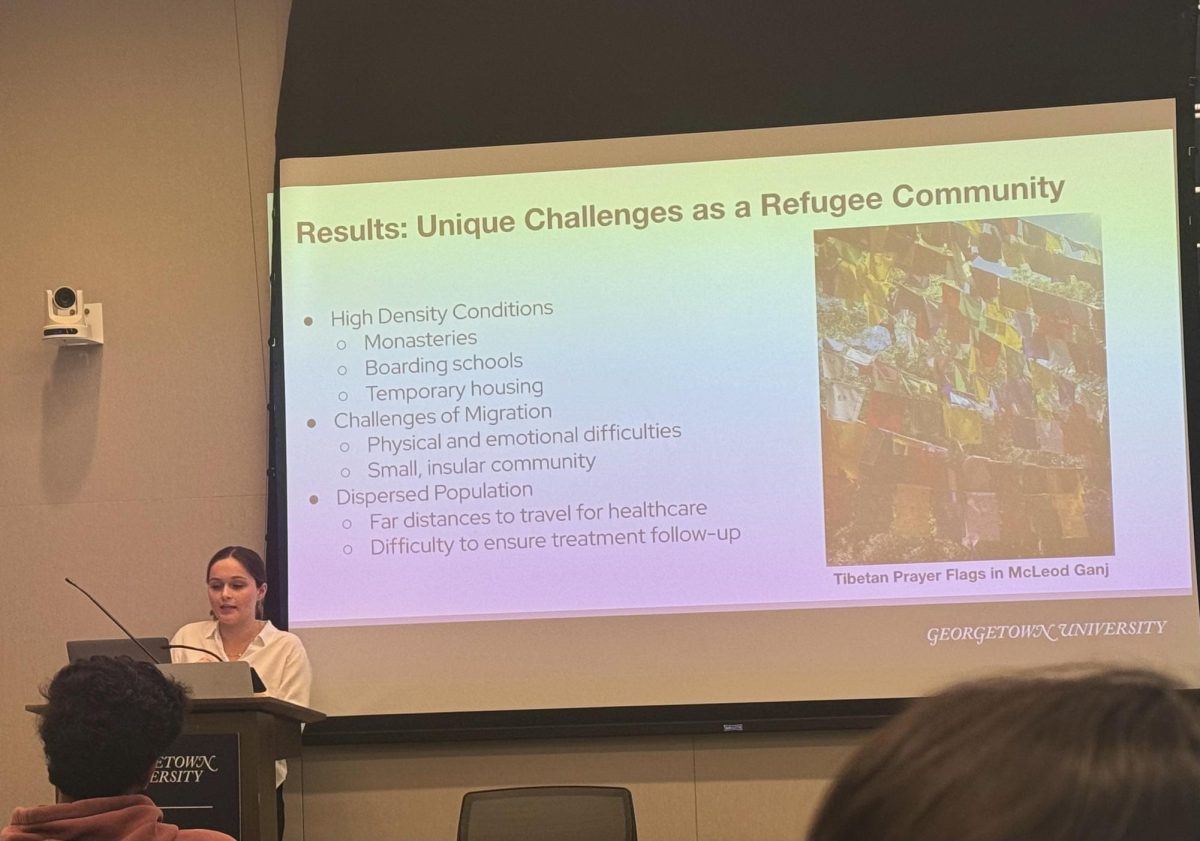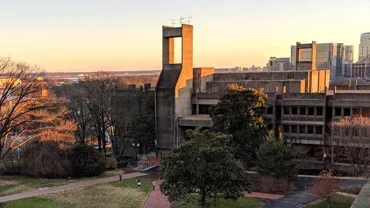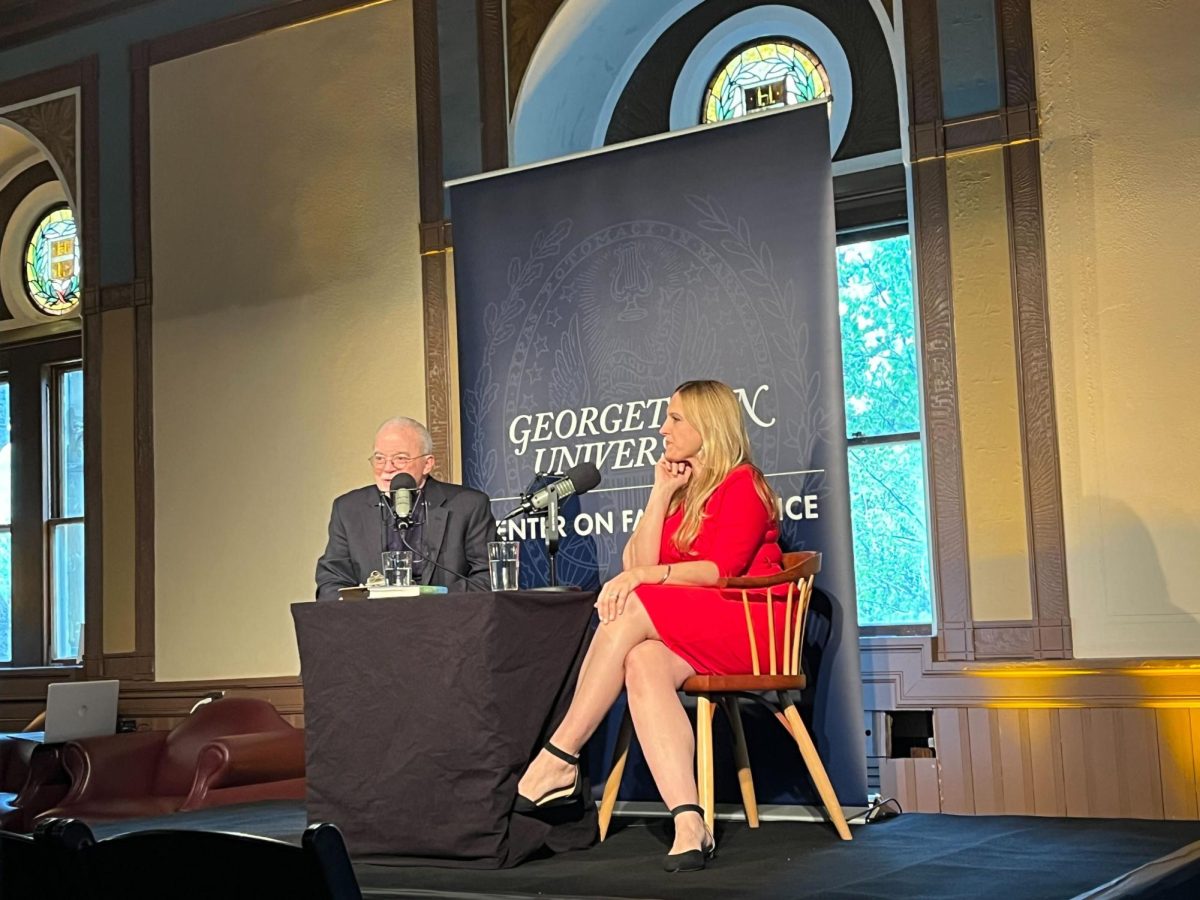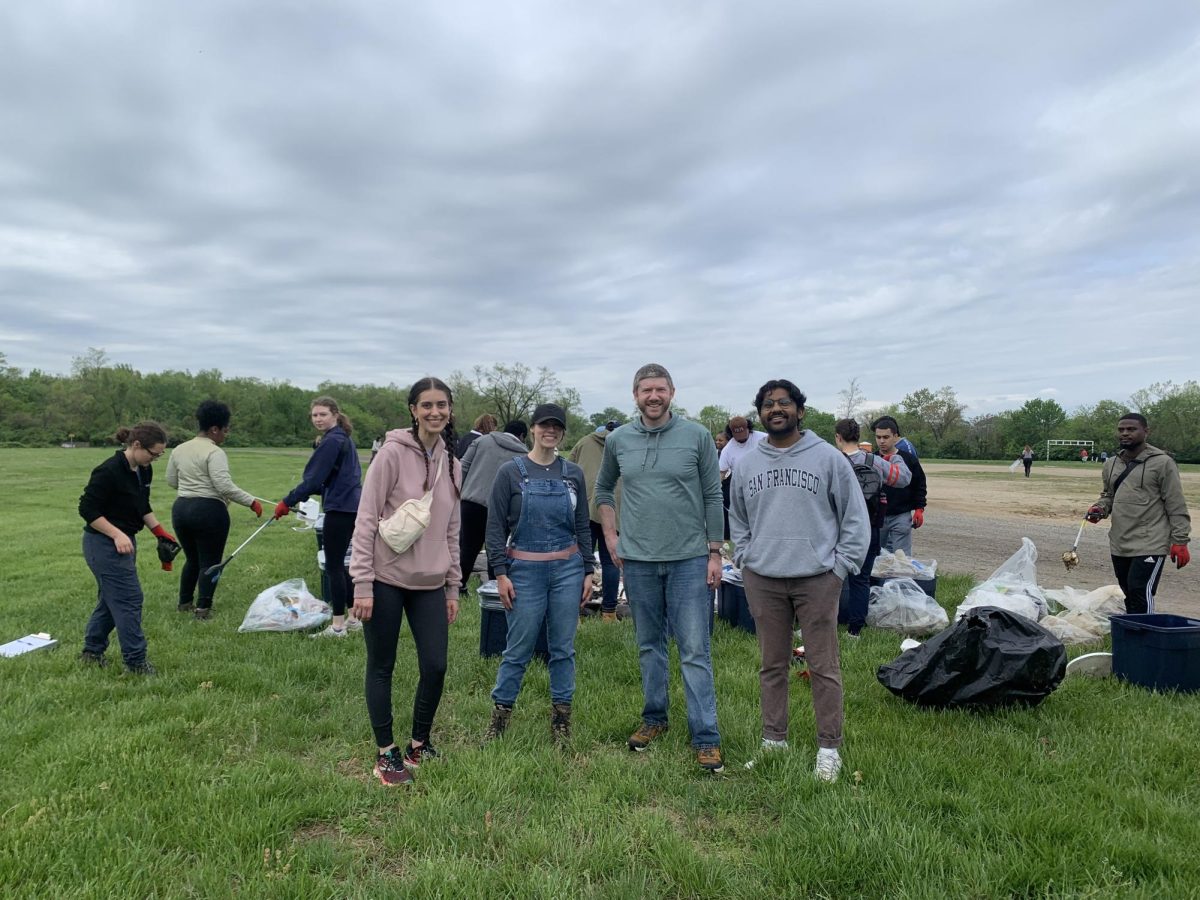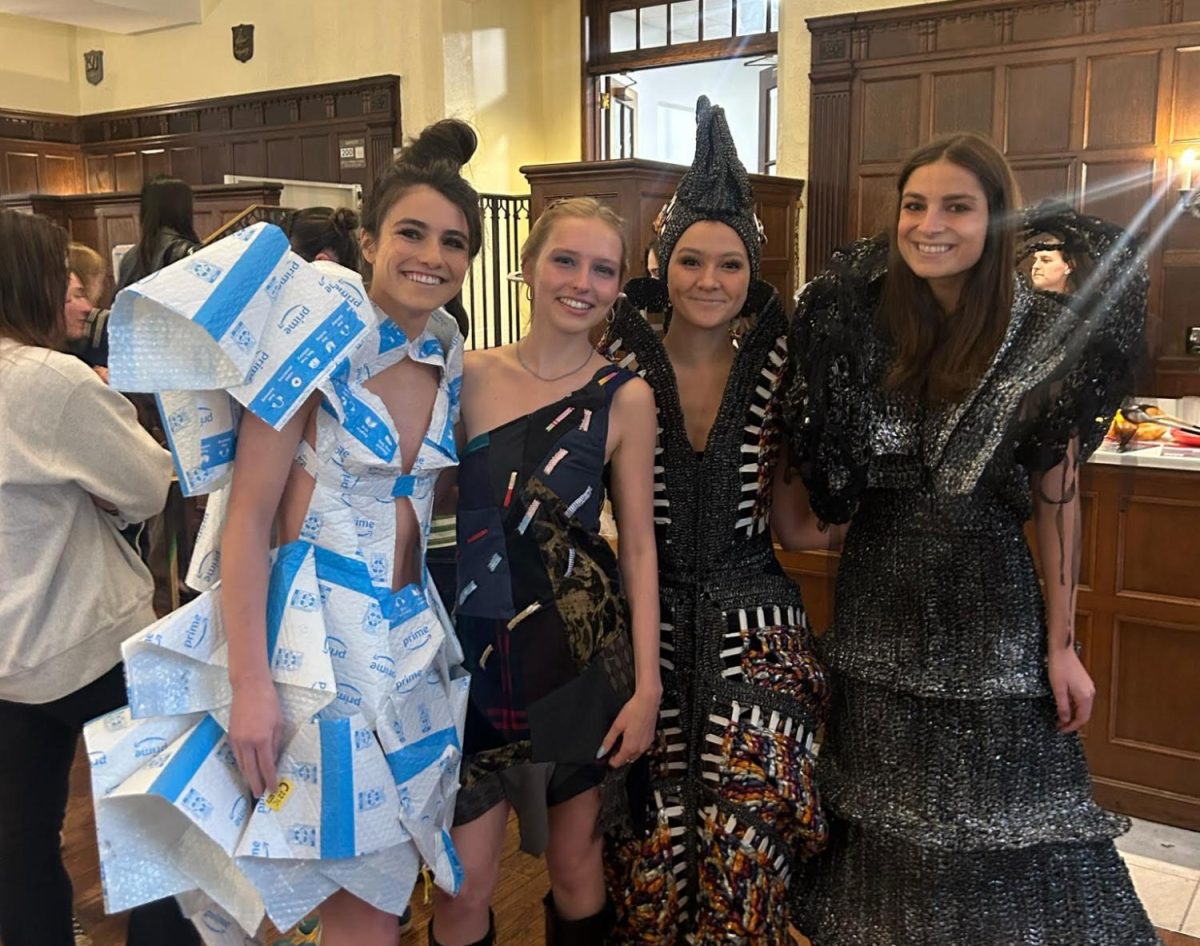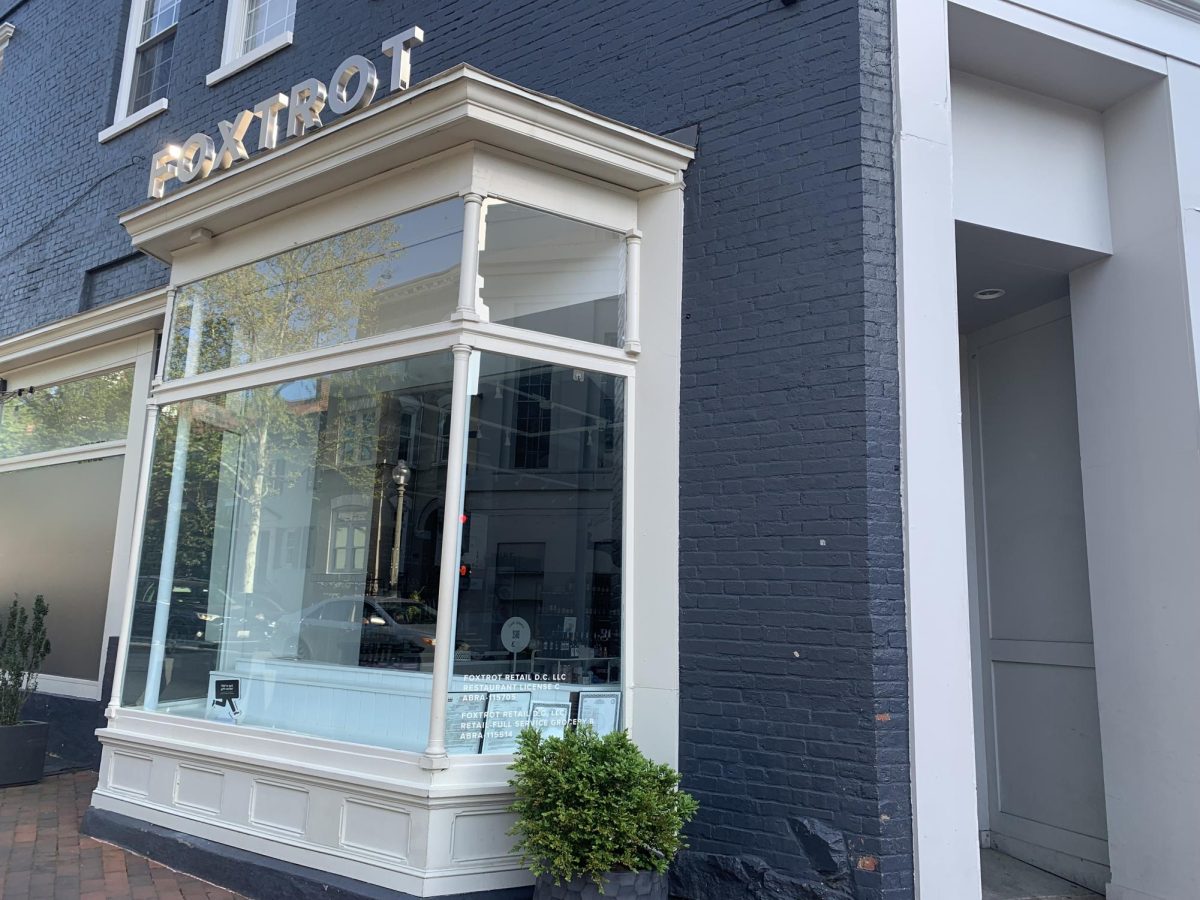The founding donor for the McCourt School of Public Policy called for safer online platforms and warned of the dangerous power of digital platforms in a book talk with journalist Norah O’Donnell (COL ’95, GRD ’03) on March 18.
Frank McCourt (CAS ’75), the founder of the investment firm McCourt Global who serves on Georgetown’s board of directors, spoke about his new book, “Our Biggest Fight: Reclaiming Liberty, Humanity, and Dignity in the Digital Age.” The book, which McCourt collaborated on with journalist Michael Casey, explores the threats that big tech, or corporate technology giants such as Google, pose for personal data, democracy and youth mental health.
O’Donnell, anchor and managing editor for the CBS Evening News and contributing correspondent for 60 Minutes, moderated the event.
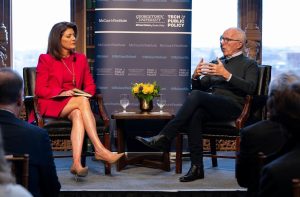
To begin the conversation, O’Donnell pointed out the intensity of McCourt’s claims, saying that the book draws attention to the internet concerning issues of health, safety and government.
“You blame the internet for a mental health crisis, for suicide rates rising among young people, for why politics is toxic and refer to it as a threat to democracy. It’s a pretty stark picture,” O’Donnell said at the event.
McCourt said that although today’s internet has the potential to be a factor for positive societal change, the harm digital technology is causing outweighs any potential good.
“There’s an old expression, ‘A hammer is just a tool.’ It can be used to build a house or to kill someone. It’s how the tool is used that matters, and right now this tool is being used in ways that are doing lots of damage,” McCourt said at the event.
McCourt said that digital platforms have changed significantly from how they ran when large tech companies initially went public, moving from simpler transfers of data between locations to more complicated collections, which are now referred to as apps.
“We’ve defaulted into this attention economy. They’re driven by our time — the more the better — regardless of how we were spending that time,” McCourt said. “So these platforms became massively profitable, but also massively powerful, and now we have a situation where our internet is not decentralized, it’s in fact highly centralized. It’s very autocratic and surveillance-based. It’s highly exploitative and very predatory.”
“These platforms know everything about us, far more than we know about ourselves. We should be digital citizens, but we’re becoming digital subjects,” he added.
O’Donnell additionally read aloud an excerpt from McCourt’s book, which highlighted McCourt’s belief that the internet is removing users’ autonomy.
“In the internet era, you have been stripped of your rights. You have no agency. You are not a citizen. You are a vassal, a serf, a subject, beholden to the demands of your digital feudal overlord,” O’Donnell read from the book.
McCourt said that he wrote his book to highlight the work of Project Liberty, an international organization he founded that is dedicated to educating the public on the potential consequences of digital technology. With an emphasis on social media, the project advocates for equitable internet development.
According to McCourt, the potential to widen technology reform advocacy from a purely technical issue to a social one encouraged him to expand the scope of Project Liberty — to which all proceeds of “Our Biggest Fight” will go.
“We very quickly realized that this couldn’t be just another tech project to fix what’s wrong with tech. This needed to be a far more broad-based project, and that’s when we really began to think about how one would reimagine the internet not just as a technical or technological project, but as a social project,” McCourt said.
McCourt also said that creating new solutions to the problems posed by current technology is essential to protect future generations, adding that new parents should not have to pick between two fraught options — either allowing their children to have what may be harmful technology or refusing and risking isolation from their peers.
Instead, McCourt said parents should be able to trust that the devices they are giving their children are safe and healthy.
“Let’s go ahead and get the better way out there and not just be dragged into some future we don’t want. Let’s create the one we want, that’s safer for our kids, that sustains democracy and restores some sense of sanity to the world and returns integrity to the internet,” he said.
McCourt compared “Our Biggest Fight” to “Common Sense,” Thomas Paine’s 1776 call to action encouraging the American colonies to advocate for independence from Britain.
Highlighting other groups that have impacted change through large-scale involvement, specifically Mothers Against Drunk Driving, McCourt said the crux of the book is that Americans currently face a similarly monumental choice about self-regulation on the internet, specifically in terms of personal data.
“You can either continue to be a subject of a monarch, owned by a king with little to no rights of a human nature and little to no property rights, or you can choose to be a citizen, to have rights, rights that become known as unalienable rights,” McCourt said.
“You can have agency, autonomy, choice, you can be someone. And if you can own things and we can create a government that we self-regulate, it’s self-government. And that’s the American project, right?” he added.




